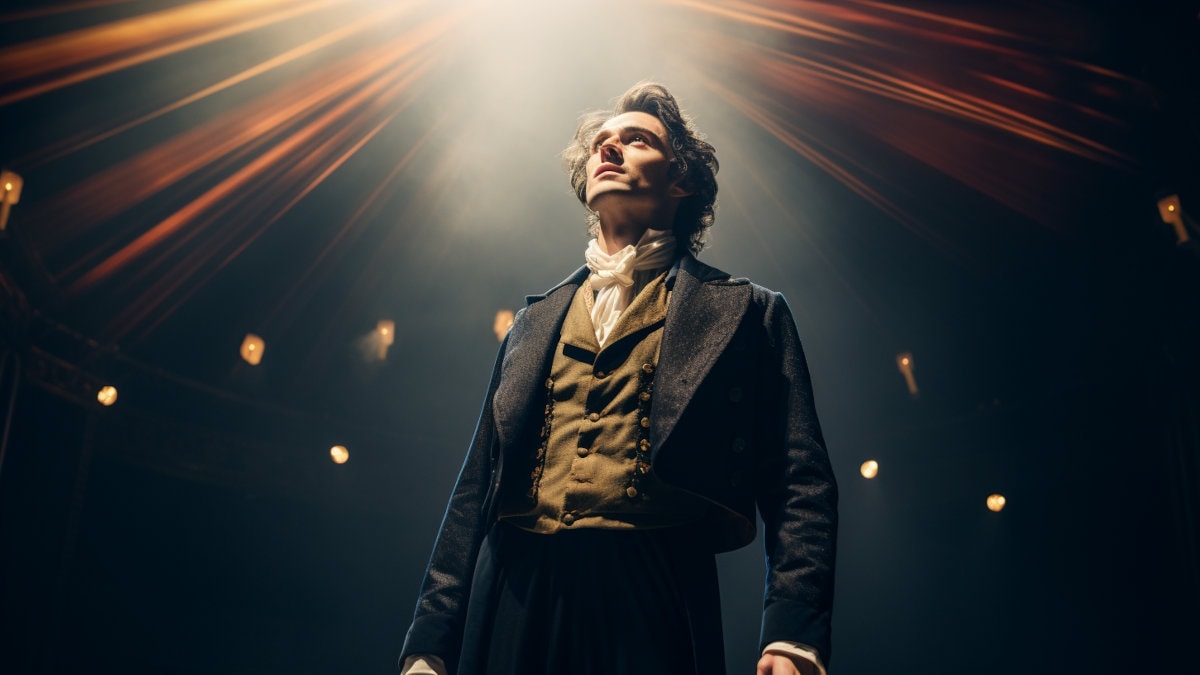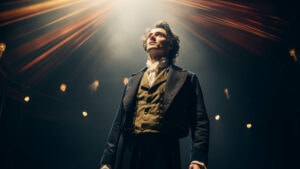It’s not a secret that some of the best actors of the modern day have spent years studying the craft at elite drama schools or classes, but this can be time-consuming and expensive, especially when just starting out. So in this modern world where everything is online, can acting be self-taught?
Whilst feedback from a good acting teacher can be crucial in assisting the development of an actor’s ability, it’s definitely possible to learn to act without classes. With many great books and online resources on acting techniques, the self-taught approach is a great way of getting a headstart.
But going in blind is a recipe for disaster. In order to make the most out of your self-taught training, it’s important that you first create a plan of action. So in this article, I’ll be going over the best ways of learning to act without classes, as well as some important things to be careful of.
Table of Contents
Start by Having Fun
Before getting into the actionable steps of how to learn to act without classes, I think it’s important to mention that the reason we enjoy performing is that it’s fun. Being an actor, as a concept, is pretty silly. We’re pretending to be something that we’re not.
So many people treat the arts with so much weight, they treat it so seriously. I’m not saying this is a bad thing, I find myself doing this too. But it’s important to realise every now and again that being silly, childlike and playful is important to being an actor.
This step may not seem too important, but being able to let go is. An actor that is able to let go, have fun, not be self-conscious and dive deep into something without worrying about looking silly has the potential to be truly great. Start by having fun and letting go. Then, we can move on to the other stuff.
Study an Acting Technique

In my opinion, learning an acting technique is the best way to dramatically improve as an actor. But there are many techniques that you could learn and every actor has their preference. So where should you start?
Take Control of Your Acting Career
Learn to build a consistent and sustainable career in the entertainment industry!
I’d highly recommend reading this post I recently wrote on the 5 Best Acting Techniques That All Actors Should Know. I go into brief detail about each technique, its history, the founders’ beliefs as well as where you can find resources to help learn each of these techniques.
Many of these acting teachers wrote books and you can even find video footage from their classes and documentaries online that are absolutely invaluable and will, without a doubt, transform your thought process to acting.
Which Acting Technique Should Actors Learn First?
The first acting technique that most actors start by learning is The Stanislavski System. Stanislavski is by far the most influential acting teacher in modern history, all of the elite drama schools teach his methods and they’re used by actors all across the industry every single day.
READ: The Myths of The Method: Can Method Acting Be Dangerous?
For those looking to learn these techniques without taking classes, there are many books and online resources that go into great detail. You may not get the full benefit of being in a class, but if you’re smart and practice these techniques, you can still learn a lot!
If you’d like to read Stanislavski’s books that he wrote over the years, you can find them with the affiliate links below:
Although, some may find these books complicated as they were originally written from a Russian perspective. My favourite book on Stanislavski’s techniques is The Complete Stanislavski Toolkit by Bella Merlin. This book is extremely detailed and goes over all of his teachings, methods and ideologies.
I’d recommend taking what you learn from this book and putting it into practice. You may not find that everything is helpful to you as acting is a very personalised art form. What works for me may not work for you.
It’s important to know that a technique is a toolkit, not a manual. Over time, as you learn more and more you will take what you’ve learned and develop your own toolkit that works for you.
Record Yourself

When learning to act without classes, it can be hard to get personalised feedback. A great way to see your progress is to record yourself, or what we call ‘self-taping.’
Self-taping is an extremely valuable skill as most initial auditions in the modern day are done through self-tapes. So you’ll not only be practicing your acting, but you’ll also be learning a valuable skill that can be used to land work in the future.
While self-taping to see your progress and give yourself feedback can be great, it’s important not to be overly critical of specifics like the way you move an eyebrow at a specific point in time. Instead, be critical of the overall performance as a whole, the emotional journey. How naturalistic was your performance? Is it obvious who you’re talking to in the scene?
Watching yourself act can definitely be weird, it’s like listening to yourself; no one really likes it. Some actors will tell you that you shouldn’t watch your own performances, but I think when done right, it can be helpful. You can learn how something translates to a camera. Sometimes you may think a certain emotion is coming through, but when you watch it back, it isn’t. (I learnt that the hard way)
READ: Stage vs Screen Acting: What’s The Difference?
Be Prepared to Fail
You will fail. Without a doubt, you will fail, many times. Sometimes you will fail so much that you question whether you should be pursuing this path. But each time you fail, you’ll be one step closer to success. The more you fail, and learn from it, the faster you will become great.
Every great actor was once less great than they are today. They failed many times. You must be prepared to fail in order to succeed. Not only when practicing or performing but in reality, actors hear more no’s than yes’s. We may audition for countless roles before getting a single offer.
It’s important to mention that just because you don’t get a role, doesn’t mean you failed, but it can feel this way. When you’re okay with the fact that you may fail at something and you let that fear pass, you will be ready to surpass failure. The more you fail now when no one is watching, the less you will fail later. Fail, then fail, then fail again.
Actually Perform!

If you want to become an actor, the most important thing is to actually perform. It sound’s obvious, right? You can read all the books you like, and you can watch all the interviews and documentaries you like, but unless you actually perform, you will not improve.
When reading a book, you should be thinking about how to implement what you learn. When you watch an interview or recording of a class, again; you should be thinking about how to implement what you learn.
I’d also highly recommend joining a community or amateur theatre group, taking part in student films, and maybe even making your own films with friends. Not only will you be practicing the art of acting, but you will also be getting valuable experience that can be put on your CV when you do want to start looking for paid work.
You may feel intimidated, and you may want to learn to act before you actually start acting in front of people, but unfortunately, you can’t do this. This goes back to failure. Be prepared to fail. Join a group, start acting and learn as you go. The best way to learn anything is to learn by doing.
The Cons of Learning To Act Without Classes

If you put the previous points into action, you’ll be on the right path to becoming a great actor. But there are some things that are important to know.
1. External Feedback is Crucial
Getting feedback from a great director or acting teacher is absolutely priceless. If you’re doing this completely alone, you won’t get that. It can be hard, especially when first starting out to point out the flaws in your own performances.
You may record yourself and say, “Oh I don’t like what I did with my hand there,” but that can make you overly self-conscious of your body. Acting is a reflex. It’s what happens in the moment. You do the emotional and historical preparation upfront and then you let go and perform.
When you’re thinking about what to do with your hands or where to look, it can create stiff performances. Having outside feedback is invaluable in the sense that an acting teacher or director can help push you in the right direction.
2. It’s Important to Act with Other People
Acting isn’t always a solo endeavor. When learning to act without classes, it’s very easy to fall into the trap of getting too into your head. In real life, when you’re talking to someone, you’re probably looking at their eyes, you acknowledge the colour of their shirt, and you see them.
If you’re at home, practicing alone, you may not have that. You may have heard the term, ‘acting is reacting,’ it can be hard to create legitimate, in-the-moment reactions to someone that isn’t there, and acting is all about being in the moment.
You can learn to act without classes, but it’s incredibly hard to learn to act completely on your own. You need to put the concepts you learn into practice, and the best way to do that is by doing that with other actors.








